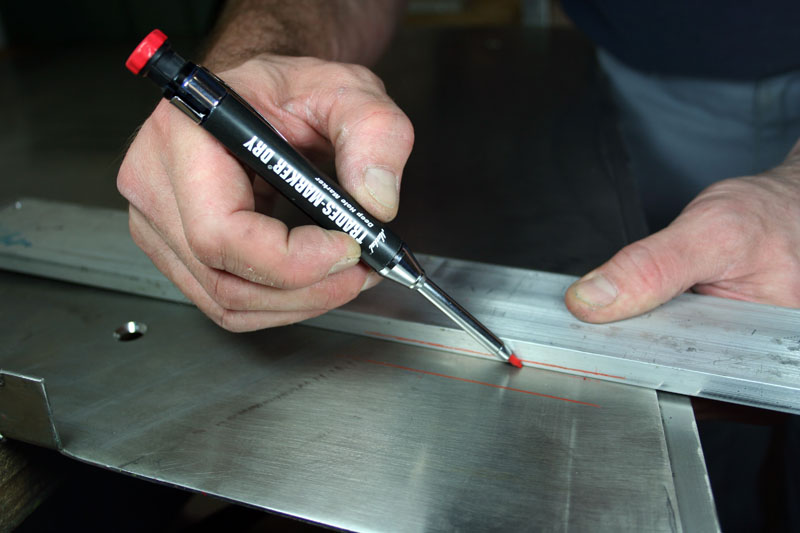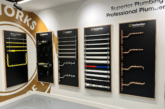
John Dabb, Sales and Marketing Director at Hyde, considers the options for industrial markers.
Industrial markers don’t take up too much counter space and, as well as being an essential piece of kit for tradespeople, are often also a handy add-on purchase that can quickly escalate the value of the average sale. But with so many to choose from, it isn’t possible for merchants to stock all of them.
So how do you tell the difference between the potential high-flyers and those that may just gather dust and remain unsold? And how do you persuade customers that the investment of an industrial marker is worth it and not to simply settle for a general office marker instead?
The initial step is to go right back to basics and consider what your customers want from an industrial marker — what they will be using the product for and the qualities that they would consider to be must-haves. Nail these and your counters won’t be staying full for long.
While the temptation among tradespeople may be to make do with two or three markers as their version of an all-rounder, these are unlikely to suit all the applications all of the time. Rather, the type needed will largely depend on the surface being marked — for example, whether it is oily, wet, rusty or dirty. Equally, the efficiency of a project may rely on being able to see certain areas marked and may involve extreme temperatures, either very cold or very hot, all of which will render an office marker inadequate in no time.
Because industrial markers are in demand with very specific qualities, they are available not just in ink, but also in paint. The strength of the marker’s colour also can make a difference on the job whilst some marks may need to remain seen until washed off and this requires specific ink or paint too.
Offering real paint in a barrel, the different tips of liquid paint markers include metal ball and felt tip. The pigment-based paint dries to leave bright, visible marks. Alternatively, solid paint markers offer the durability of paint, in a convenient crayon form which is ideal for rough surfaces.
One of the most common forms of industrial marker, used for everyday tasks and a wide range of surfaces is the ink marker. These dry quickly and are available with a variety of tips, from fine tips, bullet, medium chisel or broad chisel tips.
Finding the correct marker for the tasks at hand starts with thinking of the markers as the tools that they are — it doesn’t make sense to carry around only one type of screwdriver, and the same can be said for industrial markers. In an ideal world, customers will opt for a few of each type in their tool bag, but may not initially realise the importance of doing so.
For merchants, knowing the main differences between the various type of industrial marker will help customers make an informed choice and ultimately mean selling more products.









